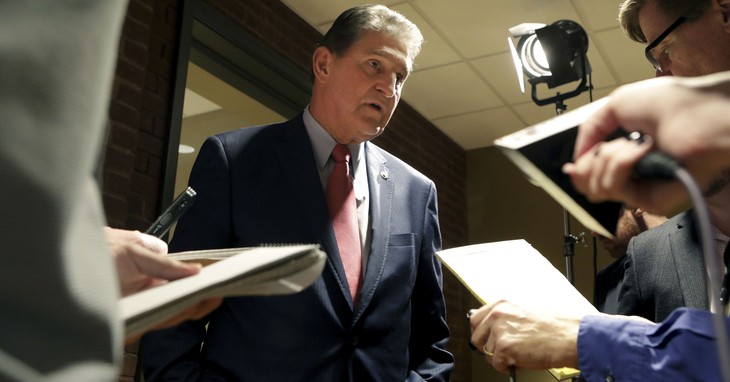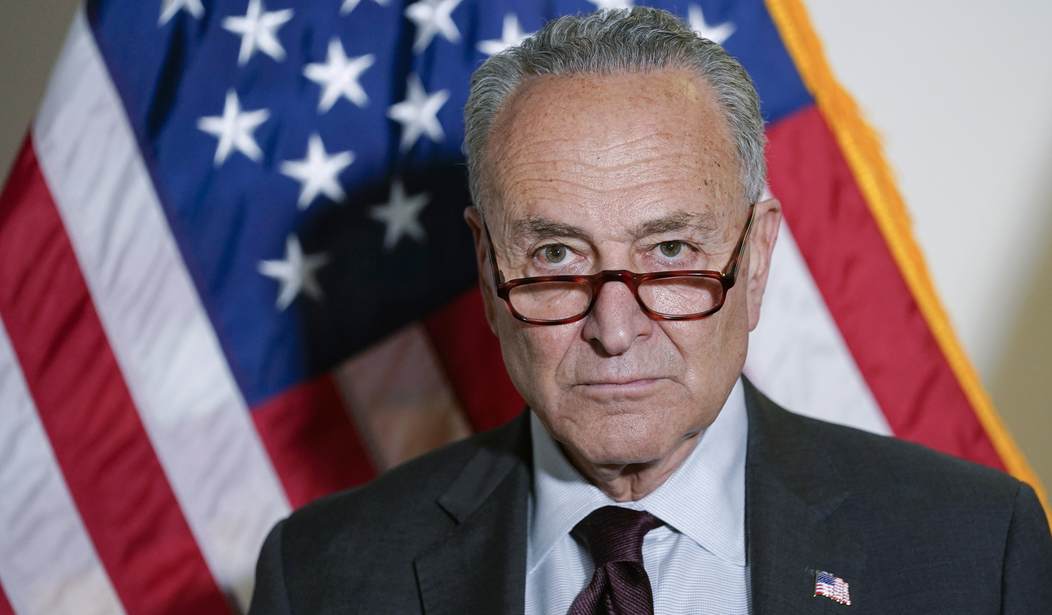It is very difficult to be one of the leaders of one of the three branches of our federal government and yet have no power whatsoever. The whole point of becoming a leader is to have power and wield it, whether carefully or with reckless abandon.
In fact, to be one of the key leaders of government in Washington and yet have no power whatsoever is a feat previously thought to be impossible. But one man looked at the dystopic wasteland of Washington D.C. in the aftermath of the 2020 election and thought “I am going to achieve the impossible.”
That man is Chuck Schumer.
The Senator from New York is, essentially, the leader of the Senate. Through him, the business of the Senate is scheduled. Through him, the final negotiations of what his party, the party in power, seeks. Their opponents are the Republican Party, technically splitting the Senate with them but powerless as they have a tie-breaking vote.
And yet, Schumer is beholden to a small group of Senators who will not allow his party to destroy the filibuster and pass a highly questionable bill expanding the federal government’s role in our elections. Members of his own party aren’t down with the cause.
The leader of these centrists is Joe Manchin of West Virginia.
Now, when we use the term “centrist”, we don’t mean it ideologically. Manchin is a fairly liberal guy with a voting record to back that up. His centrism, however, is based in his belief that regular order in the Senate requires the tools necessary to keep the institution from being corrupted – a belief shared by a majority of Democrats. Manchin, from his position as the maker or breaker of the Democratic Party agenda, is the most powerful man in the Senate and, arguably, second only to President Joe Biden in terms of power.
Manchin has not only come out and said he would vote to keep the filibuster, but that he would vote against H.R. 1, the previously-mentioned election bill. That bill, which is the Democrats’ primary agenda in this Congress, is dead in the water as a result. Manchin isn’t the only one in this position, mind you. Kyrsten Sinema and Mark Kelly of Arizona are also proving difficult obstacles for Democrats, and all three hail from states that have enough Republican voters that they actually have to consider them in their political calculations (a revolutionary new idea in politics!).

Manchin, however, is more or less set up as the leader of the centrist wing of centrist Democrats and is pretty much the one everyone else supports or attacks, giving him much more power than Schumer. Behind Manchin, though, is Mitch McConnell, the Senate’s Minority Leader, who has an unheard-of level of power for a Minority Leader.
Part of the problem there is that Schumer just does not have the level of command over his caucus that McConnell did, and it shows. McConnell can whip his votes, and has proven so time and again. For all the grievance and ridicule Republicans like Lisa Murkowski and Susan Collins get, their votes against the party came at times when Republicans either already had the votes to pass something or when it was clear they wouldn’t have it even with their support. McConnell commands the Republicans in the Senate in a way that Schumer just can’t seem to with the Democrats.
And it’s a glaring weakness of Schumer’s. He is considering divisive votes and can’t get his party behind the initiatives. What’s worse is that the loudest voices of his party – Alexandria Ocasio-Cortez, the Squad, etc. – and even the leadership in the House seem to have more sway over his Senate Democrats than he does.
Schumer sort of fell into the position when Harry Reid decided to retire from the Senate. Reid, like McConnell (though not as effective), had a command over his caucus that he was able to wield to effect change. Schumer can’t get anything remotely similar done, and he is incredibly vulnerable because of it.
2022 will not be good for the Democrats, and part of it will be due to a lack of effective leadership from Schumer.














Join the conversation as a VIP Member